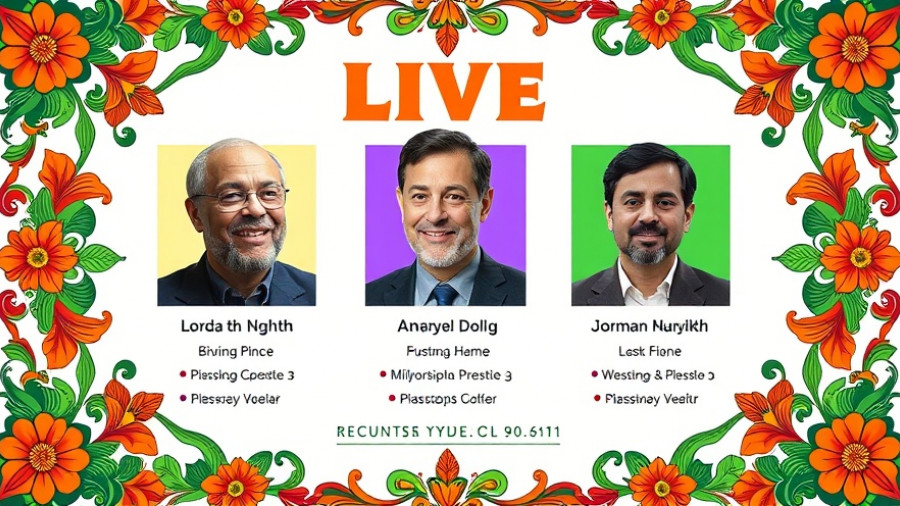
Reimagining Urban Living: A Future Free from Cars
As urban landscapes evolve and sustainability takes center stage, the dream of car-free cities is not just a fantasy but a necessity. On October 24, 2025, San Francisco will host an engaging summit titled "Life After Cars," dedicated to exploring how we can liberate ourselves from automobile dependency. Co-authors Sarah Goodyear and Doug Gordon will lead discussions on the profound implications of transitioning to a car-free lifestyle, addressing issues such as equality, climate change, and even personal well-being.
The Costs of Car-Centric Culture
Automobile culture has imprinted itself deeply into the fabric of American life, affecting our cities' designs and the daily choices of millions. For too long, roads meant for cars have dominated urban planning, leading to congested streets, pollution, and increased health issues. The impact is staggering: last year alone, vehicular violence took 40,000 lives in the U.S., with more than 1.25 million dying globally each year on the roads. With cars taking the most space in our cities, less room is left for parks, housing, and vibrant community interactions, all critical for establishing a healthy society.
Connecting Through Community: The Heartbeat of City Life
Imagine stepping out of your house and finding a welcoming street, filled with cyclists, pedestrians, and children playing. Moving away from car-centric design transforms not just our surroundings, but our social fabric. A car-free environment fosters spontaneous interactions and a sense of community as we navigate our neighborhoods together. In contrast to the isolation that often comes with traditional commuting, being on foot or on a bike allows for meaningful connections with fellow residents and strengthens the bond within the community.
Learning from Car-Free Cities: What Works?
Cities around the globe are leading the charge in car-free innovations. From Oslo, which has successfully implemented vehicle restrictions in its city center, to Amsterdam and its world-renowned cycling infrastructure, these examples show that rethinking transportation can yield incredible benefits for urban areas. Officials are discovering that prioritizing people over vehicles brings about healthier environments and happier residents, a fact that is echoed globally.
Practical Tips: Navigating the Car-Free Transition
As we work towards a car-free future, practical steps can be taken today. Start local by advocating for improved public transport and expanding bike lanes or community walking paths. Participate in events like the upcoming summit at KALW to gain insights from experts and share your ideas on possible changes in the Bay Area. Every small effort contributes to a major shift in the car-oriented paradigm that has dominated urban planning.
The Green Benefits That Await
Transitioning towards car-free environments also directly addresses climate concerns. Reduced emissions will significantly lower air pollution levels, improving overall community health. The World Health Organization's #BreatheLife Campaign advocates for cleaner air as cities become less dependent on vehicles, leading to healthier lives. Less traffic and better air quality mean more people enjoying outdoor spaces, further enhancing community interaction and health.
A Vision for the Future: Daring to Dream
To envision a future void of car dependency is to dream of a world where everyone feels safe and valued in their urban environment. By advocating for transportation planning that includes accessible infrastructure for walking and biking, we position ourselves to create vibrant communities. In a landscape free from cars, our neighborhoods can flourish, with reduced pollution and increased happiness.
This is an exciting time for urban communities, especially in places like the Bay Area where the energy for grassroots activism thrives. The October 24 summit presents a unique opportunity for like-minded individuals to converge and share ideas to help sculpt the prospective landscape of transport innovation. By paving the way for car-free options, we foster a city that promotes engagement, health, and sustainability.
Join the conversation on October 24. Let's imagine and craft a safer, cleaner, and more equitable future together!
 Add Row
Add Row  Add
Add 



Write A Comment